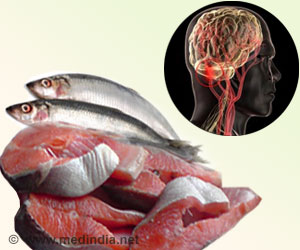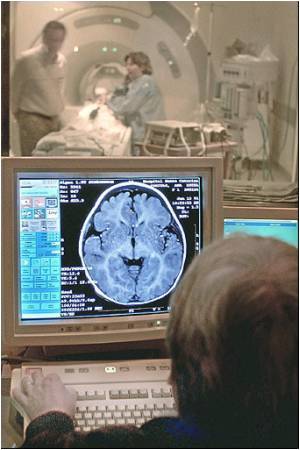- Maternal DHA status during pregnancy is related to children’s fat-free body mass at 5 years of age, says new study
- Maternal diet high in DHA can promote a leaner, healthier growth outcome for children
- DHA is rich in fatty fish like salmon, tuna, mackerel and also in meat and eggs
DHA Dietary Supplement Linked to Higher Fat-free Body Mass in Children
The study involved 157 women with low-risk pregnancies from the Kansas City. They were enrolled for a study at KU Medical Center's Maternal and Child Nutrition and Development Lab between March 2006 and September 2009. The research team randomly assigned half of the participants to a prenatal DHA supplement of 600 mg, and the other half were given a placebo.
After a period of five years, children born to those pregnant women were tested using the BodPod, an Air Displacement Plethysmograph that uses whole body densitometry to determine body composition (fat and fat-free mass). The research team found that children born to mothers who took the DHA supplements during pregnancy had an average of 1.3 pounds (500g) more fat-free mass, but the same amount of fat at age 5 compared with the placebo group.
"While we don't know the mechanism for the finding, We do know that the balance of omega-3 and omega-6 fatty acids early in development can influence the balance of muscle and fat cells," said Carlson Susan Carlson, professor in the Department of Dietetics & Nutrition in the School of Health Professions.
"The number of muscle fibers is believed to be set by term birth." Carlson's co-author, John Colombo, professor of psychology and director of KU's Life Span Institute.
Colombo noted that the study makes two important contributions. The first contribution is about DHA. It is well-known that DHA is associated with improvements in visual, Cognitive and behavioral development in early life. But the study findings suggest that DHA may also have a role in promoting a leaner, healthier growth outcome in children. The second contribution is that the results of the study show the conditions that children experienced during the time that their mothers were pregnant with them are associated with their body composition almost six years later.
The findings of the study add evidence to another observational study conducted in the United Kingdom, said Carlson.
DHA is an omega-3 fatty acid, which is essential for the growth and functional development of the brain in infants. DHA plays a key role in the maintenance of normal brain function in adults. A diet rich in DHA improves learning ability, cognitive and behavioral development. Lack of DHA in the diet is associated with fetal alcohol syndrome, attention deficit hyperactivity disorder (ADHD), cystic fibrosis, phenylketonuria, unipolar depression, and adrenoleukodystrophy.
DHA is present in fatty fish like salmon, tuna, mackerel and mother's milk. Meat and eggs also have low levels of DHA. The requirement of DHA increases in the last trimester of pregnancy and the first two years of life. DHA is needed for optimal health during early development. DHA can be delivered to the fetus by increasing maternal intake during pregnancy and to breastfed infant by increasing DHA intake during lactation.
Pregnant women seeking to increase their intake of DHA can consult with their gynecologist for prenatal supplements with DHA and can also increase their intake of oily fish.
Reference:
- Brandon H Hidaka, Jocelynn M Thodosoff, Elizabeth H Kerling, Holly R Hull, John Colombo, Susan E Carlson. Intrauterine DHA exposure and child body composition at 5 y: exploratory analysis of a randomized controlled trial of prenatal DHA supplementation. The American Journal of Clinical Nutrition, (2018) DOI: 10.1093/ajcn/nqx007
- Health benefits of docosahexaenoic acid (DHA) - (https://www.ncbi.nlm.nih.gov/pubmed/10479465 )
Source-Medindia












